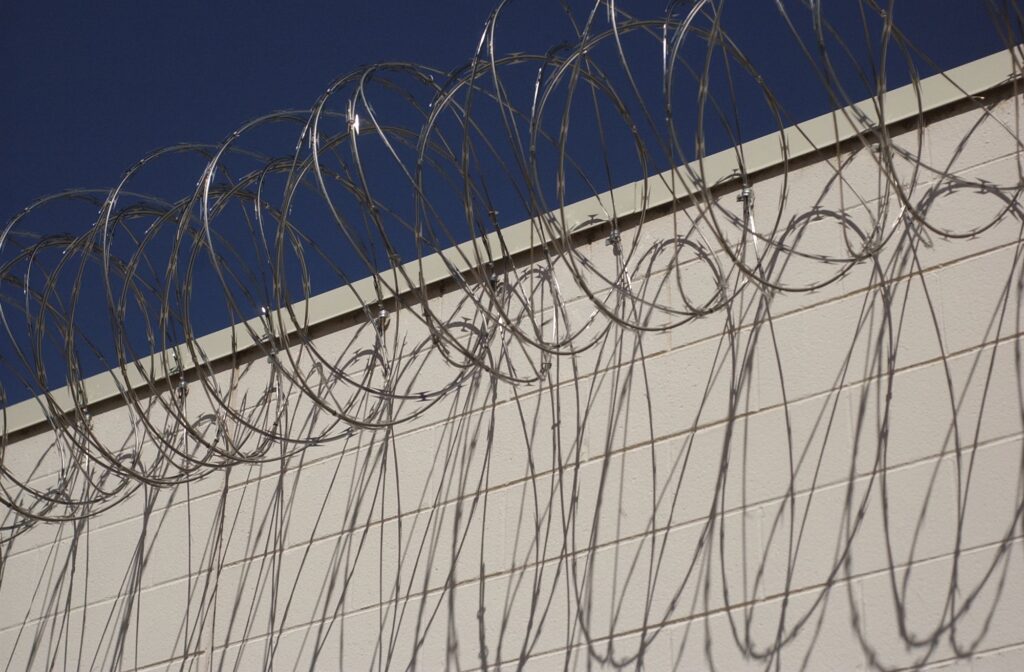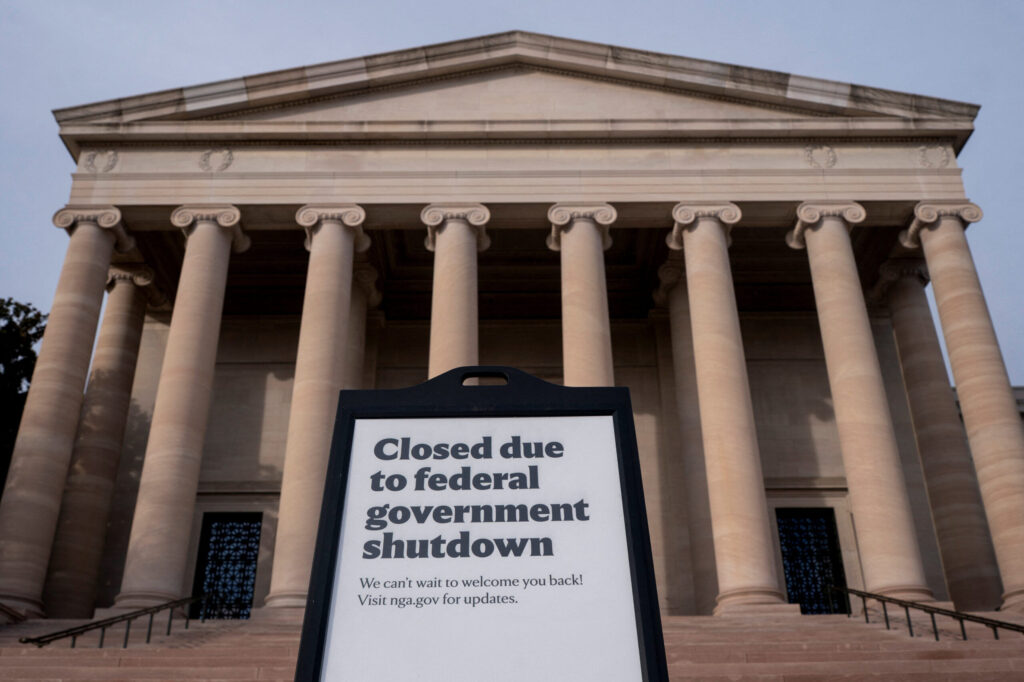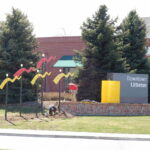Hickenlooper on replacing the state’s caucus system, being impressed with Hillary, hatching a cybersecurity hub, still hoping for hospital fee fix

In this week’s window-side chat with reporters — the latest in the series the governor is doing in the last month of the legislative session — John Hickenlooper answered questions about the state’s caucus system, which has been making headlines around the country as the heated presidential primary contests continue. He also talked about Democratic Party presidential frontrunner Hillary Clinton’s fundraising stop at the governor’s mansion last week, about hatching a major cybersecurity industry hub in Colorado, and about his commitment to making a deal with Senate Republicans on the thorny budget-related issue of reclassifying the state’s hospital provider fee.
The ‘chaotic’ caucus system
“The caucuses this year were chaotic,” he said. In fact, they were overrun on the Republican and Democratic side. Historic numbers of people turned out. People waited in lines for hours. Many were turned away. Tallies on the Democratic side were reported incorrectly.
“There were so many more people than a caucus system is designed to handle,” Hickenlooper said.
“I’ve been pretty candid that I think a primary system in a state as large as Colorado with as many people paying attention to politics as pay attention to politics in this state — that (passing a bill to move to a primary election) makes sense. I realize it will cost more money — and we have to look at how we pay for that. That’s not an inconsequential issue. I support having an elective primary.”
Hickenlooper said the state might begin by holding primaries only during presidential election years as a way to hold down costs.
“I want to see all the costs,” he said. “If the costs were reasonable and we could figure out a way to pay for it, I don’t see why we couldn’t start with presidential (election years) but then going to all the races. Hopefully we get more people involved.
“I talked to a great number of people this year who didn’t go to caucuses or wanted to go to caucuses and just didn’t have enough time to make that kind of commitment…
“The caucus process has always allowed people to have a deeper discussion about the issues around the campaign and in that sense it is very valuable. I’ve been trying to think outside the box and figure out some way that we can retain elements of the caucus process and allow those people that have the time to come and caucus.
“In my (caucus) group, we had 160 people, I think, maybe 170 people. On a whim, I asked how many people still hadn’t made up their mind. There were four people. So if that’s really the case, is the caucus, for all the amount of time it requires, is it really adding that much value?”
Hickenlooper cited frustrations with the state’s delegate-appointing system — which have made headlines since Republican presidential candidate Ted Cruz last weekend swept all 34 of the state’s delegates to the party’s national convention even though Donald Trump is leading in the race nationally and in national polls — to further bolster his case for simpler, more direct, primary elections.
“(The frustration) suggests that there are multiple reasons why we should go to a ballot, to a primary rather than a caucus. In those states where you have primaries, in larger states, I think the two candidates come out closer together than in the caucus states.
“I think it’s fair to say that if we had a primary vote, we would see the number of (delegates) going to Sanders and Clinton would be much closer, would be roughly closer together than what we get our of the caucus system.”
Hillary lingered
“Secretary Clinton spoke on a host of issues and she was impressive in terms of her command of the issues,” he said, referring to Clinton’s fundraising visit to Denver last Thursday. “She was relaxed and comfortable — she made more jokes I think than I’ve ever seen her make.
“The little things sometimes are so telling,” he added. He explained that she was running late for the entire visit but that she lingered anyway.
“She spent more time talking to people after [her talk]… There were two girls selling lemonade and she stopped and went over and talked to them. There was half the neighborhood — equal numbers of kids and adults — and she came over and sat and talked with them and took some selfies and signed the the lemonade stand sign. Those kids will remember that for the rest of their lives.
“I was impressed. Most of the neighbors afterward came up and said. ‘That was so cool.’ Even the one guy lives up the block, a pretty hardcore republican… He came up and said, ‘You know, that was great. I’m glad she came to the neighborhood.’
“And that’s American politics, you know? Coming into a neighborhood, the candidate takes time after doing a fundraising event to stop and just talk to the neighbors and the kids.”
Hickenlooper again played down talk that he would be asked to join a Clinton administration.
“There’s never a cabinet position that’s as good as being the governor of Colorado,” he said.
Hospital provider fee
There are no taxpayer refunds to pay this year because the state didn’t bring in enough revenue to hit the TABOR spending cap. But the governor said that fact doesn’t diminish the urgency of the need to reclassify the state’s hospital provider fee — to move the hundreds of millions it brings in each year out of the general fund so more revenue can be spent on state projects and hospitals can count on receiving as much of the hospital fee reimbursements as possible. In fact, Hickenlooper said, maybe the fact that no one’s expecting a refund creates a better climate to strike a deal on the matter at the Capitol.
“All the more reason to work on (reclassification),” he said. “It’s not going to take away anybody’s refunds, so there’s not that personal issue — but (the problem of the fee) is still there, and it’s still going to create problems — if not this year, next year.
“I think the question is should it have been categorized as a fee?” he said. “The money doesn’t go into the general fund. It’s collected on a per-bed basis. The money is used for a specific purpose to make sure hospitals can get at least partly compensated for the so-called uncompensated care they’re required to give under the law of the land.
He said that in his mind, at least, questions about the constitutionality of the move had been put to rest.
“If it looks like a fee and acts like a fee, it probably should be classified as a fee,” he said. “Now we have not only the former attorney general but also the sitting attorney general both say that it fits that legal criteria as a fee. Seems to me it would be easier to get it done this year than in a year where it would be perhaps jeopardizing a refund.
Hisckenlooper said he continues to talk with Republican leaders in the Senate who have been strongly opposed to reclassifying the fee.
“(Senate leaders) have been willing to discuss the issue repeatedly and kind of try and understand some way we can find a compromise. We haven’t gotten there yet but we’re still working.”
Cybersecurity, the art of the deal, ‘light-hearted whimsy’
Hickenlooper said convincing lawmakers in a lean budget year to put aside $8 million to seed a cybersecurity research center in Colorado Springs was easy because it was clearly a good investment. With mocking reference to GOP presidential primary frontrunner Donald Trump, he joked the deal came about due to his incredible negotiating skills.
“You know, over the years in the restaurant business, I just gained a certain skill in what some would call ‘the art of the deal,’” he said leaning back in his chair theatrically. “I’m sure I’ll be punished for that, for my light-hearted whimsy.”
“This is an initiative that I think has very low risk and potential for very high reward for the entire state,” he continued. “Colorado Springs was slow to recover, really hasn’t had quite the same activity and increase in wages that we’ve seen in some other parts of the state.
I think (the investment) will create jobs and business growth all up and down the Front Range. If we can become known as one of the real centers for research around cybersecurity, it will benefit the whole state. We already have a critical mass. In Colorado Springs already there are 80 some cybersecurity businesses. When I gave the State of the State speech (in January to open the legislative session in which he mentioned the cybersecurity center) there were 63 businesses. Now it’s 80. That’s rapid growth. We’re seeing some growth in Denver, some in Fort Collins. We’re seeing it everywhere.
“That money in a lean year is a lot but it’s also a very small drop in the bucket compared to what it might create in terms of jobs and new businesses.
“I think the Legislature is right to look at what is the risk to reward and looking down the road.”
Some comments edited for length and clarity.













